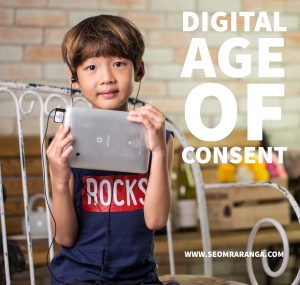 After a period of public consultation which ended last December, the Cabinet last week decided that the so-called “Digital Age of Consent” in Ireland is to be set at age 13. Apparently, the decision follows a recommendation made earlier this month by the special rapporteur for child protection, Dr Geoffrey Shannon.
After a period of public consultation which ended last December, the Cabinet last week decided that the so-called “Digital Age of Consent” in Ireland is to be set at age 13. Apparently, the decision follows a recommendation made earlier this month by the special rapporteur for child protection, Dr Geoffrey Shannon.
The European Union will enact legislation on May 25th of next year, the General Data Protection Regulation (GDPR), to determine the age at which providers of online goods and services (eg. gaming platforms and social media apps and websites) offered to children should seek the consent or authorisation of the child’s parent or guardian in order to use the service and to collect data about them.
Article 8 of the GDPR provides that, in the case of information society services offered directly to a child, parental consent is required where personal information of a child under 16 years of age is collected and shared with other service providers. It allows, however, for Member States to adopt a lower age threshold provided that the age is not below 13 years. The providers of such services are required to make reasonable efforts to verify that parental consent is given in each case.
Given that children are required to be aged 13 to open accounts with most of the main Social Media platforms, it is perhaps not surprising that the Cabinet decided to go with the lower end of the age limit for Ireland.
Speaking to the Silicon Republic website, the Executive Director of Spunout.ie Ian Power said:
To set the age any higher would mean to deprive children of educational and social opportunities online as they develop into young adults. The proposal to verify the ages of prospective teen users and confirm parental consent would have been impossible to meaningfully enforce.
According to the Irish Times, The Children’s Rights Alliance, which represents more than 100 organisations involved in children’s welfare, had also recommended setting the limit at “the lowest age possible”.
It now falls on both parents and service providers to play their part in ensuring that children stay safe online. Parents need to become more aware of their children’s online life and service providers will have to make a greater effort to ensure that children are of a “digital age of consent”.





